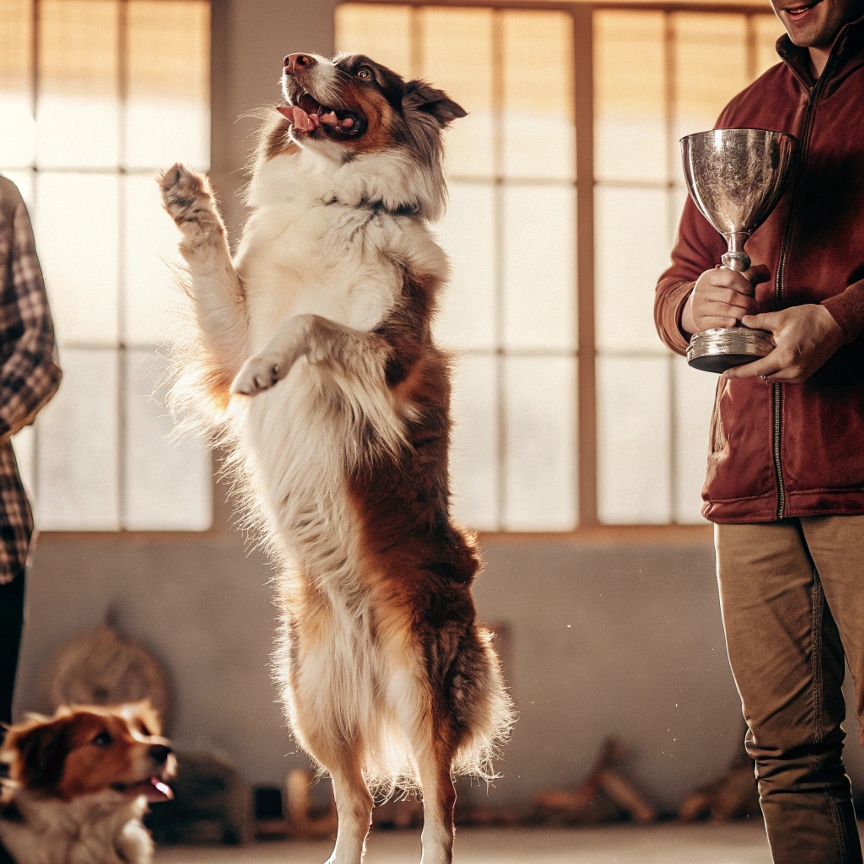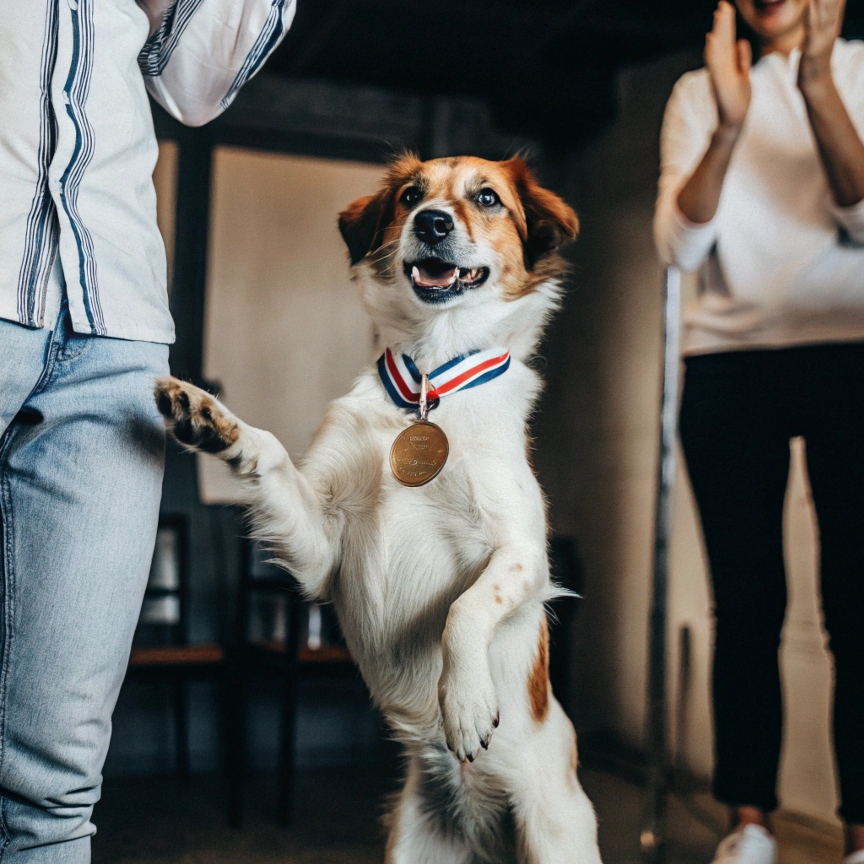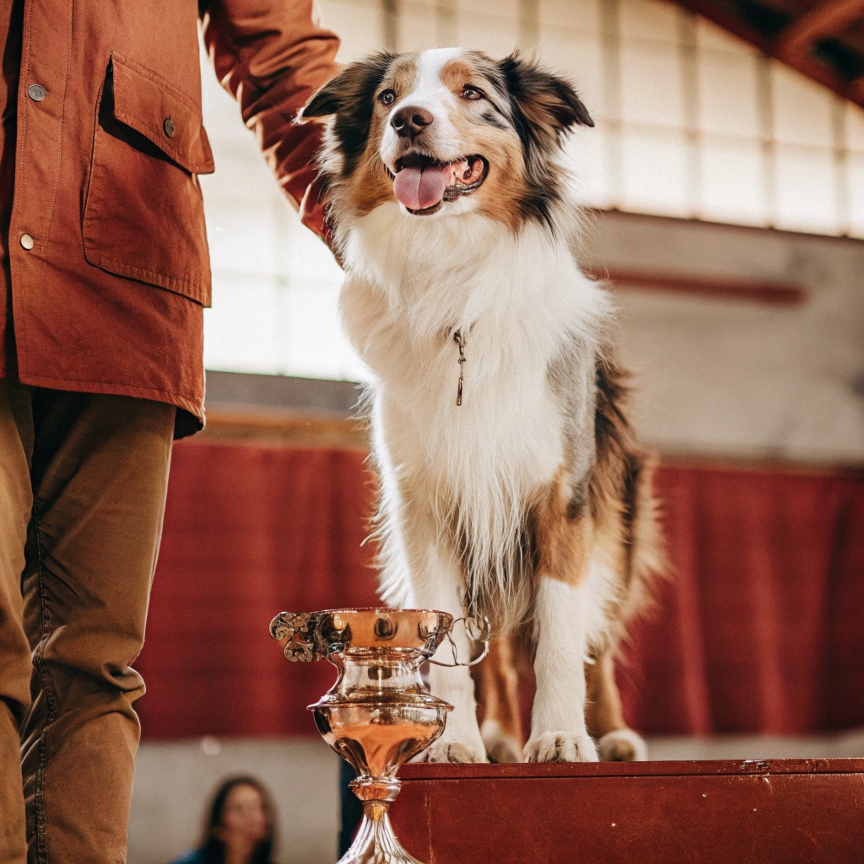Dog Adoption Guide
Welcoming a Dog Into Your Family
Adopting a dog is a life-changing decision that brings years of companionship, joy, and unconditional love. This comprehensive guide will help you navigate the adoption process and prepare for your new furry family member.

Why Adopt a Dog?
- Save a Life: Each year, approximately 3.1 million dogs enter U.S. shelters. Adoption gives a deserving dog a second chance.
- Find the Perfect Match: Shelters and rescues have dogs of all ages, sizes, and personalities.
- Know What You're Getting: Shelter staff can provide insights into a dog's personality and behavior.
- Cost-Effective: Adoption fees typically include vaccinations, microchipping, and spay/neuter surgery.
- Fight Puppy Mills: Adoption helps reduce the demand that keeps puppy mills in business.
Before You Adopt: Important Considerations
Time Commitment
Dogs require daily feeding, exercise, training, and attention. Depending on the breed, dogs need 30-120 minutes of exercise daily, plus time for training, grooming, and companionship.
Financial Responsibility
The lifetime cost of dog ownership ranges from $15,000 to $93,000, including food, routine veterinary care, preventive medications, grooming, toys, and unexpected medical expenses.
Living Situation
Consider your home's space, yard access, and pet policies if renting. Some breeds adapt better to apartment living than others, and some landlords have breed or weight restrictions.
Lifestyle Compatibility
Your lifestyle should match your dog's needs. Consider work schedule, travel frequency, activity level, and experience with dogs when choosing a breed or individual dog.
Finding Your Perfect Match
Choosing the Right Size
Dog size affects everything from exercise needs to food costs. Consider:
- Small dogs (under 20 lbs): Great for apartments, lower food costs, easy to travel with, but may not be ideal for homes with small children.
- Medium dogs (20-60 lbs): Versatile size, good for most living situations, moderate exercise needs.
- Large dogs (60+ lbs): Need more space, higher food costs, may have more health issues, but often calmer temperaments.
Age Considerations
- Puppies (0-1 year): Require extensive training, socialization, and supervision. Need frequent potty breaks and can be destructive while teething.
- Adult dogs (1-7 years): Usually house-trained, settled personalities, may already know basic commands.
- Senior dogs (7+ years): Lower energy, typically well-behaved, require less exercise but may need more veterinary care.
Energy Level
Match your activity level with your dog's energy needs:
- High energy: Border Collies, Huskies, Australian Shepherds need 1-2 hours of vigorous exercise daily.
- Moderate energy: Beagles, Cocker Spaniels, most mixed breeds need 30-60 minutes of daily exercise.
- Low energy: Bulldogs, Basset Hounds, Great Danes are content with short walks and lots of lounging.
Special Needs Dogs
Consider opening your heart to a dog with special needs. These dogs may:
- Have a chronic medical condition requiring ongoing treatment
- Need mobility assistance (missing limbs, wheelchair)
- Have sensory impairments (blindness, deafness)
- Require behavioral support for anxiety or reactivity
While they may require additional care, special needs dogs often form incredibly deep bonds with their adopters.
The Adoption Process: Step by Step
Research and Preparation
Learn about different breeds, assess your lifestyle, and prepare your home for a dog.
Find Available Dogs
Browse WherePets, visit local shelters, or contact breed-specific rescues.
Meet and Interact
Spend time with potential dogs to assess compatibility, ask staff about behavior and history.
Complete Application
Fill out adoption paperwork, provide references, and possibly undergo a home check.
Pay Adoption Fee
Fees typically range from $50-$500 depending on the organization and the dog's age/breed.
Welcome Home
Bring your new family member home and begin the adjustment period.

The First 30 Days: Setting Up for Success
The first month is crucial for establishing routines and building trust with your new dog. Here's how to make the transition smooth:
Create a Safe Space
Designate a quiet area with a comfortable bed, fresh water, and a few toys where your dog can retreat when feeling overwhelmed.
Establish a Routine
Dogs thrive on consistency. Set regular times for feeding, walks, play, and sleep.
Start Training Early
Begin with basic commands like sit, stay, and come. Use positive reinforcement techniques.
Schedule a Veterinary Visit
Have a complete health check-up within the first week, even if the shelter provided recent medical care.
Success Stories: Happy Tails

Rocky & The Martinez Family
"After losing our senior dog, we weren't sure we were ready for another pet. Then we saw Rocky on WherePets and knew he was meant to be part of our family. He's brought so much joy back into our home."
Adopted from: Second Chance Shelter

Bella & Sarah
"As a first-time dog owner, I was nervous about adoption. The shelter paired me with Bella, a gentle 4-year-old Lab mix who was already house-trained. She's been the perfect companion for apartment living!"
Adopted from: Happy Tails Rescue

Max & The Johnson Family
"We specifically wanted to adopt a senior pet. At 9 years old, Max was being overlooked at the shelter. He's the perfect, calm companion for our family with young children and still has so much love to give!"
Adopted from: Golden Years Rescue
Frequently Asked Questions
The adoption process timeline varies by organization. Some shelters offer same-day adoptions, while others may take several days to complete reference checks and home visits. Rescue organizations often have more thorough screening processes that can take 1-2 weeks.
Adoption fees usually cover:
- Spay/neuter surgery
- Initial vaccinations
- Microchipping
- Deworming treatment
- Flea/tick preventive
- Basic medical exam
- Sometimes a starter kit with food samples and basic supplies
The value of these services would typically cost $300-$800 if purchased separately.
Yes, renters can adopt, but most shelters will require proof that your landlord allows pets. This might include a copy of your lease mentioning pet policies or a signed letter from your landlord. Some shelters may contact your landlord directly for verification. Be aware of any breed or weight restrictions in your rental agreement before adopting.
When meeting a potential dog, look for these compatibility signs:
- The dog engages positively with all family members, including children if applicable
- Energy level matches your lifestyle
- The dog's size is appropriate for your living space
- Any specific needs (medical, behavioral) are ones you feel prepared to address
- You feel a connection with the dog
Many shelters offer trial periods or foster-to-adopt programs that let you ensure the dog is a good fit before finalizing the adoption.
